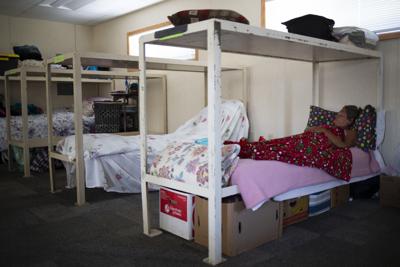In May, we observe Mental Health Awareness Month. Considering that 1 in 5 U.S. adults lives with a mental health condition, it’s essential that local lawmakers, business leaders, individuals and families collaborate to support access to quality behavioral health services not only during the month of May, but also throughout the entire year.
When we work together, progress is tenfold. Together, we can fund, build and realize these projects to ensure the health and well-being of our most vulnerable community members.
Across Yakima County, community behavioral health provider Comprehensive Healthcare partners with several public and nonprofit organizations, including Camp Hope — a homeless encampment in Yakima — to respond to the mental health needs of residents.
In fact, this strengthening partnership has resulted in our team recently receiving more than $1 million in Washington state funding to build a new on-site behavioral health service center and transitional housing at Camp Hope.
This collaboration will support people experiencing homelessness and suffering from complex behavioral health and substance abuse challenges.
Through this partnership, we are meeting some of the most critical needs of vulnerable community members identified in the 2021 Homeless Response Systems Mapping Report for Yakima County Research.
These include:
- Increasing “Housing First” and low-barrier shelter options — By working together, Comprehensive Healthcare and Camp Hope are building 32 additional transitional housing units for community members — getting them off the street and into safe, secure homes. This is impactful, especially for folks who don’t typically qualify for help from homeless shelters because of their drug use or criminal record. Camp Hope is a low-barrier encampment and believes in the “Housing First” model, which prioritizes getting people housed before attending to things that are less critical, such as employment or drug treatment.
- More consistent outreach and engagement care — The new behavioral health center on-site at Camp Hope will provide residents with easy access to care right where they live. This enables individuals with substance abuse challenges and mental health needs to overcome common barriers to care such as high transportation costs and a complex public transportation system. In addition, they are much more likely to benefit from consistency in care where they can develop relationships with their team and move toward recovery.
- Dispatch specialty outreach teams to serve unsheltered people in crisis and provide agile mental health solutions for those who are in danger to themselves or others — When we’re able to bring specialized team members to our partner locations, like Camp Hope, these community behavioral health professionals are readily available to deescalate crises, taking pressure off law enforcement and hospitals.
We’re working together to make real and lasting progress towards caring for our community members — safely keeping them off the streets so they can live more productive and fulfilling lives.
This is just one example of how the power of collaboration is impacting our Yakima community and beyond. Just imagine the endless possibilities if we could build more partnerships throughout our region.
We urge you to think of ways that your local leaders, businesses, organizations, community groups and individuals can collaborate to make a difference for our collective behavioral health. We hope to raise awareness around this idea of collaboration for Mental Health Awareness Month, then turn those ideas into action throughout the remainder of the year.
Jodi Daly, Ph.D, is the CEO of Comprehensive Healthcare, which serves behavioral health clients in six counties throughout south-central Washington.




